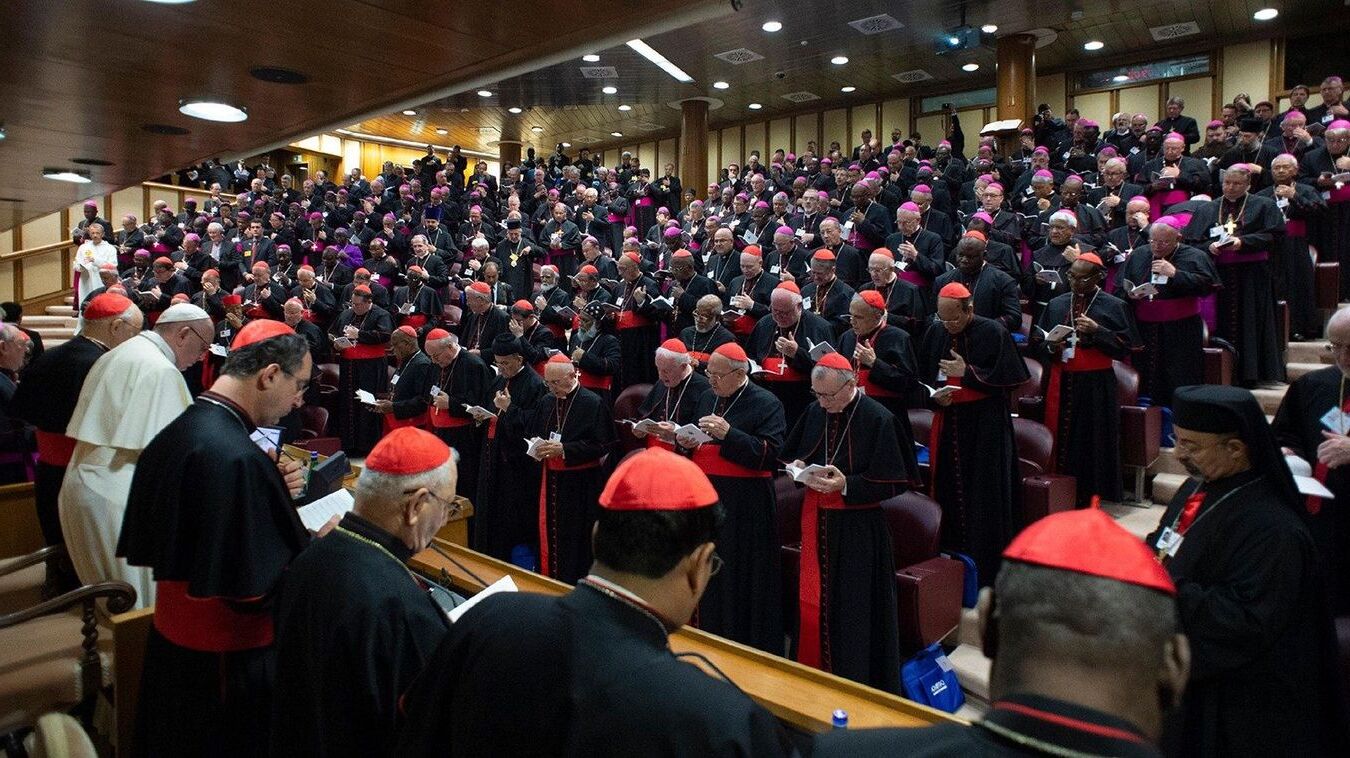
What is a Synod? A Synod is a gathering of church leaders to discuss and decide on important matters within the church. The term comes from the Greek word "synodos," meaning "a journeying together." Synods have a rich history dating back to early Christianity, with the Council of Jerusalem around 50 AD being one of the earliest examples. These meetings play a crucial role in church governance, shaping doctrine, and addressing contemporary issues. From the Council of Nicaea in 325 AD to modern gatherings like the Second Vatican Council, Synods have been pivotal in defining church practices and beliefs.
What is a Synod?
A Synod is a gathering of church leaders to discuss and decide on important matters within the church. The term comes from the Greek word "synodos," meaning "a journeying together."
-
Definition of Synod: A Synod is a meeting of high-ranking clergy and other church leaders to discuss and make decisions on church matters.
-
Early History of Synods: The earliest Synods date back to the early Christian Church, with the Council of Jerusalem (circa 50 AD) being one of the most significant.
Types of Synods
Synods come in various forms, each serving a unique purpose within the church's governance structure.
-
General Synod: A gathering of all bishops and other high-ranking clergy.
-
Regional Synod: A meeting of bishops and clergy from a specific region.
-
Local Synod: A gathering of local church leaders.
Role and Significance
Synods have played a crucial role in shaping church doctrine and practice throughout history.
-
Role in Church Governance: Synods provide a platform for bishops and other leaders to discuss and resolve issues affecting the global Christian community.
-
Significance in Church History: Synods have been instrumental in shaping church doctrine, such as the Council of Nicaea (325 AD) and the Council of Constantinople (381 AD).
Modern-Day Synods
Even today, Synods remain vital forums for discussion and decision-making within the church.
-
Modern-Day Synods: They address contemporary issues like social justice, ecumenism, and theological debates.
-
Examples of Recent Synods: The Second Vatican Council (1962-1965) led to major reforms within the Catholic Church, while the Lambeth Conference (2022) discussed issues like same-sex marriage and climate change.
Decision-Making and Impact
The decisions made at Synods can significantly influence church doctrine and practice.
-
Decision-Making Process: Synods typically follow a structured process involving voting, consensus-building, and sometimes the involvement of laypeople.
-
Impact on Church Doctrine: Decisions made at Synods can shape church doctrine, like the Synod of Pisa (1409) which led to the Western Schism.
Historical and Contemporary Challenges
Synods have faced various challenges throughout history and continue to do so today.
-
Historical Controversies: Synods have been involved in controversies like the Arian controversy in the 4th century and the Protestant Reformation in the 16th century.
-
Contemporary Challenges: Modern Synods navigate global conflicts, address issues of gender and sexuality, and promote ecumenism in a diverse world.
Social Justice and Ecumenism
Synods often advocate for social justice and foster greater unity among different Christian denominations.
-
Role in Social Justice: Synods have historically advocated for social justice, from combating slavery in the 19th century to addressing contemporary issues like racism and economic inequality.
-
Ecumenical Efforts: Synods promote ecumenical efforts, fostering greater unity among different Christian denominations and other faiths.
Theological Debates and Education
Synods engage in theological debates and influence educational policies within the church.
-
Theological Debates: Synods explore complex issues like the nature of God, the role of scripture, and the sacraments.
-
Influence on Education: Synods promote theological education and the development of seminaries.
Cultural Impact and Historical Figures
Synods have shaped culture and involved many influential figures in church history.
-
Cultural Impact: Synods have influenced art, literature, and music, such as the Gregorian chant originating from early Synod liturgical practices.
-
Historical Figures: Influential figures like St. Augustine played key roles in Synods, such as the Council of Hippo.
Women’s Participation and Technological Advancements
Recent trends show increasing emphasis on women's participation and the use of technology in Synods.
-
Women’s Participation: There is a growing emphasis on women’s participation in Synods, reflecting broader trends towards gender equality within the church.
-
Technological Advancements: Technology has transformed Synods, enabling greater connectivity and participation among attendees.
Financial and Environmental Considerations
Hosting a Synod involves financial and environmental considerations.
-
Financial Implications: Hosting a Synod requires significant resources for logistics, accommodations, and administrative costs.
-
Environmental Considerations: Modern Synods prioritize environmental sustainability, encouraging practices that reduce carbon footprints and promote eco-friendly policies.
Health, Youth, and Interfaith Dialogue
Synods address health and wellness issues, engage young people, and initiate interfaith dialogue.
-
Health and Wellness: Synods may address health and wellness issues, particularly in regions with limited access to healthcare.
-
Youth Engagement: Engaging young people in Synods ensures that future generations' voices are heard.
-
Interfaith Dialogue Initiatives: Synods often initiate interfaith dialogue, fostering greater understanding and cooperation between different religious communities.
Historical Documents and Theological Education
Many important historical documents and educational policies have been shaped by Synods.
-
Historical Documents: Documents like the Nicene Creed and the Apostles’ Creed were shaped by decisions made at Synods.
-
Theological Education: Synods emphasize the importance of theological education, promoting the development of seminaries and theological institutions.
Cultural Exchange and Economic Development
Synods sometimes establish cultural exchange programs and engage in economic development initiatives.
-
Cultural Exchange Programs: Synods facilitate the sharing of ideas and practices between different regions and denominations through cultural exchange programs.
-
Economic Development: Some Synods have been involved in economic development initiatives, particularly in regions with significant poverty and economic inequality.
Human Rights and Peacebuilding
Synods advocate for human rights and engage in peacebuilding efforts.
-
Human Rights Advocacy: Synods have historically advocated for human rights, from combating slavery to addressing contemporary issues like LGBTQ+ rights.
-
Peacebuilding Efforts: Synods promote reconciliation and conflict resolution in regions affected by violence.
Environmental Stewardship and Healthcare
Modern Synods emphasize environmental stewardship and may initiate healthcare initiatives.
-
Environmental Stewardship: Synods encourage practices that protect the natural world and promote sustainable living.
-
Healthcare Initiatives: Synods may initiate healthcare initiatives, particularly in regions with limited access to medical care.
Education Reform and Social Justice Movements
Synods have been involved in education reform and social justice movements.
-
Education Reform: Synods advocate for policies that improve educational outcomes and promote equity.
-
Social Justice Movements: Synods have played significant roles in movements like the Civil Rights Movement and contemporary movements like Black Lives Matter.
Ecumenical Relations and Theological Debates
Synods foster ecumenical relations and engage in ongoing theological debates.
-
Ecumenical Relations: Synods promote greater unity and cooperation between different Christian denominations and other faiths.
-
Theological Debates: Synods explore complex issues like the nature of God, the role of scripture, and the sacraments.
Historical Controversies and Contemporary Challenges
Synods have faced various historical controversies and continue to navigate contemporary challenges.
-
Historical Controversies: Synods have been involved in controversies like the Arian controversy in the 4th century and the Protestant Reformation in the 16th century.
-
Contemporary Challenges: Modern Synods face challenges such as navigating global conflicts, addressing issues of gender and sexuality, and promoting ecumenism in a diverse world.
The Lasting Impact of Synods
Synods have shaped church history and doctrine for centuries. From the early days of the Council of Jerusalem to modern gatherings like the Second Vatican Council, these meetings have tackled crucial issues. They’ve defined beliefs, addressed controversies, and promoted social justice. Synods aren’t just historical relics; they’re active forums for discussing contemporary challenges like gender equality, environmental stewardship, and interfaith dialogue. They’ve influenced education, cultural practices, and even economic development. By bringing together church leaders, Synods ensure that the church remains relevant and responsive to the needs of its community. Their decisions echo through time, impacting not just religious practices but broader societal norms. As the world changes, Synods will continue to play a vital role in guiding the church’s path forward, making sure it stays connected to its roots while addressing the issues of today.
Was this page helpful?
Our commitment to delivering trustworthy and engaging content is at the heart of what we do. Each fact on our site is contributed by real users like you, bringing a wealth of diverse insights and information. To ensure the highest standards of accuracy and reliability, our dedicated editors meticulously review each submission. This process guarantees that the facts we share are not only fascinating but also credible. Trust in our commitment to quality and authenticity as you explore and learn with us.


